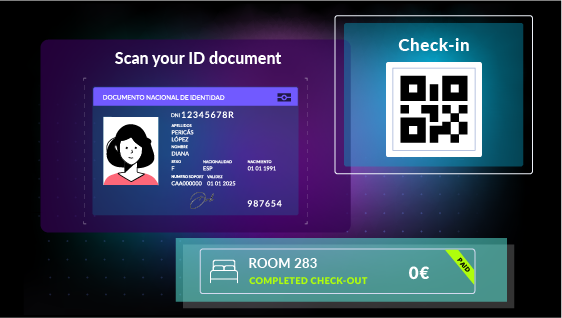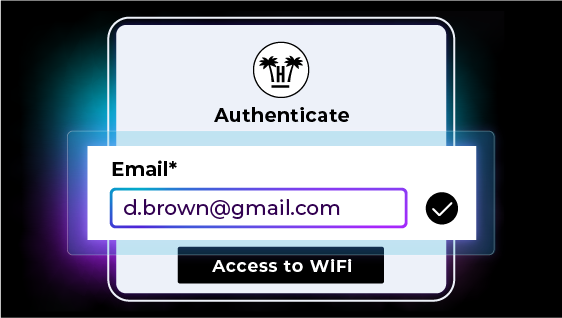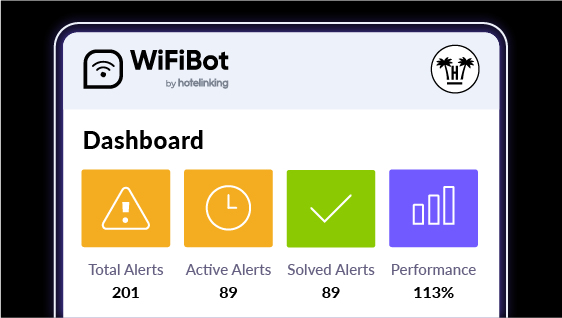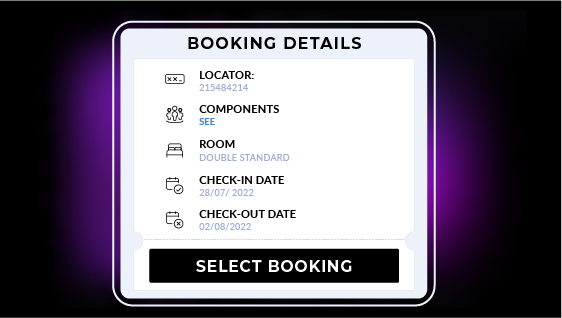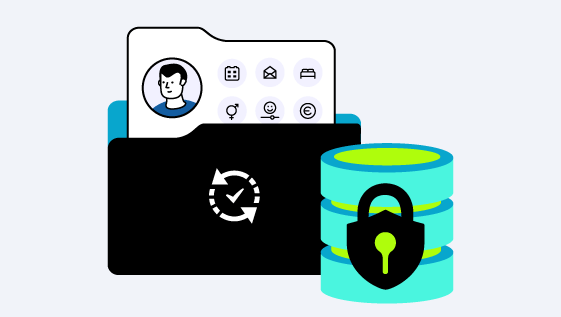
How to build a quality database for hotels.
The importance of a good database for hotels lies in having methods that enable their collection and subsequent processing safely and efficiently.
One of the most valuable assets for an accommodation is its customer database. Information about demographics, behaviours and booking preferences can help improve the hotel’s offer and guest relations.
All this guest information is known as Hotel Data, that is, the entire data universe that can help create detailed consumer profiles (buyer personas). These data must be of quality, verified, in compliance with the GDPR, and enriched so that they can be used in marketing and loyalty actions.
What information should a good hotel database contain?
For a database to be useful, it must be purposeful, unified, segmented, up-to-date and easily accessible. But above all, it must have the basic information to make the most of it. Ideally, it will have two types of data (basic and transactional) for each guest:
Basic data block
They are the guest’s main data: their verified email, nationality, age, language, gender, and GDPR status (to have the consent to send them communications).
Transactional data block
They are all the attributes that increase the value and knowledge about each guest, such as destination preferences, services, complementary activities, consumption habits, trends in terms of reservations, etc.
A hotel’s PMS is an interesting source of attributes and tags to complement the transactional block. But it must be considered that the existing data hosted in the PMS is not always structured and ordered to be used effectively.
Some of the PMS attributes that can be added to this block are the reservation channel, reservation type (only traveller, family, couple, etc.), extra expenses during the stay, number of days before the check-in date, etc.
In short, the more customer information we have, the more significant the impact it is possible to generate with the actions on them, especially at a loyalty level, and when offering them new products.
However, in the case of customers coming from intermediaries, the commissioned channels do not share all the available information. They do share data from the transactional block such as the reservation room, the board type, the adults and/or children… but the basic block is essential to build a guest database that is useful for loyalty and marketing actions.
5 benefits of building your own database
Having a property customers database has many advantages. It is a task that is usually difficult at the beginning, but that always pays off and only requires maintenance and updating, processes that are automatic if the appropriate tools are used and are integrated with each other.
- Building guest loyalty
A key to adding value to the hotel offer is knowing the customer and offering them what they need. A common way to add value is to implement a loyalty programme.
By establishing conclusions about customers thanks to the database (who are repeat customers, when do they book, purchase upgrades, etc.) it is possible to create more relevant messages and promotions to reward their loyalty.
- Increasing direct sales
Unlike other sectors, the hotel industry is the one that suffers the most in terms of lack of information. Between 80 % and 90 % of sales usually come from intermediaries through which it is almost impossible to obtain relevant guest data for the hotel because they do not share that essential information.
If a hotel has its own customer database with quality information on each of them, it is a great advantage. Among them, the possibility of boosting their direct bookings with the consequent savings in commissions and improved profitability.
- Monitoring communication with customers
Without the aforementioned Hotel Data the hotel brand cannot communicate with its guests. But, if this data is available, it will be possible to communicate with them from the very beginning. For example, with a welcome message.
It would be ideal to take advantage of event communications, which launch emails that are personalised for each guest at the right time. In this way we will create a relationship of trust between the hotel brand and the guests. If we send commercial campaigns directly without building that relationship of trust first, the success obtained will be much less.
- Smart reputation management
One of the most important areas in which data can be applied is customer satisfaction, which directly affects the hotel’s reputation.
Thanks to the data, it is possible to produce automated and personalised communications to learn about both their satisfaction during their stay and their opinions once they have left the property to solve problems and anticipate them.
- Improving the online marketing strategy
The collection of such detailed personal information from guests allows creating customer segmentations with affinities or similar behaviours to build campaigns with greater impact.
This customisation degree will, without a doubt, surprise them and increase their conversion rate. In the end, a database makes it possible to reduce the investment among various marketing actions that are less segmented and less effective.
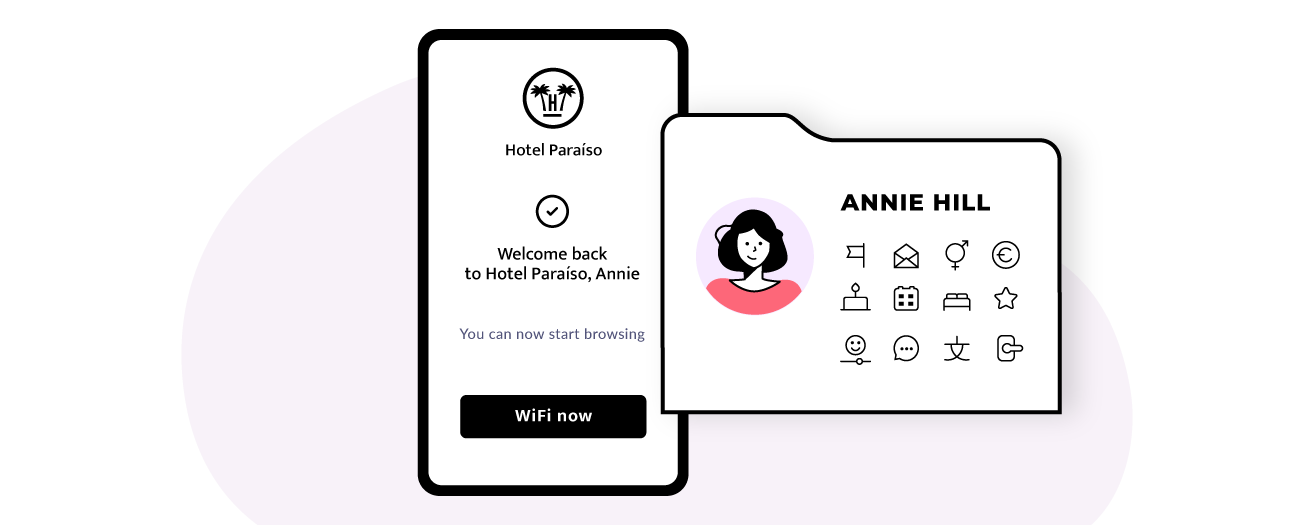
Systems to obtain information from your guests
Hoteliers should create a customer database with basic contact information and more detailed personal information about guest preferences and interests.
As we already know, all reservations from commissioned channels will not generate basic block Hotel Data since they do not share it in any way with the hotel. The alternatives that a hotel can count on are:
Social WiFi
The automated collection of contact data in the hotel through the hotel’s WiFi is one of the most effective methods. Thus, when guests try to access the Internet, they search for the hotel’s Wi-Fi network, select it and connect with one of their social profiles or through a form. It allows hotel properties to collect quality and verified data in compliance with the GDPR.
This makes it possible to collect between 60 % and 95 % of the total Hotel Data, with verified information and from all reservations, also those coming from commissioned channels.
This data collection method is more efficient, since it is not necessary to involve the reception staff and the moment when users decide to connect to the WiFi is uncomplicated.
Obviously, the amount of data collected will depend on factors such as:
- Whether the WiFi is offered complimentary across the property.
- The quality of the WiFi infrastructure: if there is a good infrastructure, with coverage in all hotel corners, the experience is good and word of mouth works within the hotel.
- The Internet flow allows fast browsing: the contracted flow must be sufficient to guarantee an excellent service to the number of recurring users in the property.
- The WiFi infrastructure is in perfect condition: the Access Points, wiring, Hotspots and hardware in general, do not present anomalies.
Ideally, we recommend a weekly WiFi network maintenance plan and a WiFi infrastructure monitoring system to detect potential failures and quickly overcome them. The Internet connection must fluid across the property if you want to ensure that guests have a satisfactory internet experience and leave their data.
This information can be further enriched if it is implemented with the PMS data to have more detailed customer profiles that allow greater awareness of the target audience. An information that contributes to developing marketing and loyalty campaigns with more precise and, therefore, more effective segmentations, capable of attracting new customers, and diverting reservations from commissioned channels to the direct channel of those repeat guests.
Pre check-in
Another solution to obtain guest information is an online check-in system. Offering guests the option to pre-check-in and helping to collect guest data before arrival also helps build loyalty by enriching the guest experience from the very beginning.
It is an alternative to simplify the guest check-in process and increase productivity at the reception. In this case, it is not the receptionist but guests themselves who complete the check in form (name, ID, reservation details, mainly) from a website or online application through any device before arriving at the hotel.
Once at the property, guests only have to worry about identifying themselves, if they have not done so previously by providing their personal documentation, and collecting their room key.
Moreover, it should be noted that pre-check in systems only allow online registration for guests who have booked through the hotel’s website. Travellers with reservations made on other channels (TT. OO., OTAs) cannot check in online.
At Hotelinking, we have developed Autocheckin, an online check-in system that, in addition to being integrated with the leading hotel management solutions on the market, enables any guest to check in regardless of the channel where they have made the reservation (direct, OTA or TT. OO.). Therefore, every time they check in, it is possible to collect all guests’ data, even those who come through an intermediary.
In a few seconds, automatically and online the data will be transferred to the PMS without involving the staff, kiosks or apps that the guest has to download.
A CRM, preferably one specialised in the hotel sector, is a basic tool to make the most of all the advantages of collecting this data.
This system allows to organise properly all the information obtained from the guests and a correct follow-up of each record. It also enables the creation and planning of personalised and segmented email marketing campaigns in a simple and fast way with which to increase direct sales and build guest loyalty.
The tracking of booking engine sales is essential for CRM, linking each purchase with each repeat guest. This helps to exclude customers who have recently booked from upcoming campaigns and drive engagement to the direct channel appropriately and without damaging customer trust in the brand.
It is essential that the CRM is integrated with the booking engine and the PMS to collect the detailed information of the reservations made by each user and thus measure all guests’ loyalty level and the savings in commissions of repeat customers who initially booked through the commissioned channel.
Does your hotel collect quality guest data?
Discover in a few steps if your hotel has quality guest data. This table that you can download will help you:
- Export in Excel or CSV a history with all the unique contacts you have, for example, in the PMS. You can sort the Excel by differentiating by columns with fields from the basic block and then with fields from the transactional block. It is important to clean duplicates.
- Once you have the Excel, filter only the rows that have an email.
- At the same time, it calculates approximately how many guests stay at the hotel or chain throughout a full year.
- Compare the number of contacts in the filtered list with the result of multiplying the number of guests who stay during a year by the number of years that corresponds to the history.
In this way you will know what percentage of raw Hotel Data (of quality and useful data) you have historically achieved, compared to the total number of guests who have stayed.
For example, imagine a hotel that accommodates 1,000 guests each year. When you export your contacts from the PMS, you see that you have a history of 3,000 unique contacts that you have collected over 3 years. By filtering only those with email, the result is 600. In other words, only 20 % of the contacts are of quality, valid for marketing and loyalty campaigns.
This is a fairly common scenario. Hotel Data percentages may vary for various reasons, but with a suitable data collection tool that is automated and integrated with the rest of the management systems you will be able to create the complete database you need to build customer loyalty and increase direct sales.


